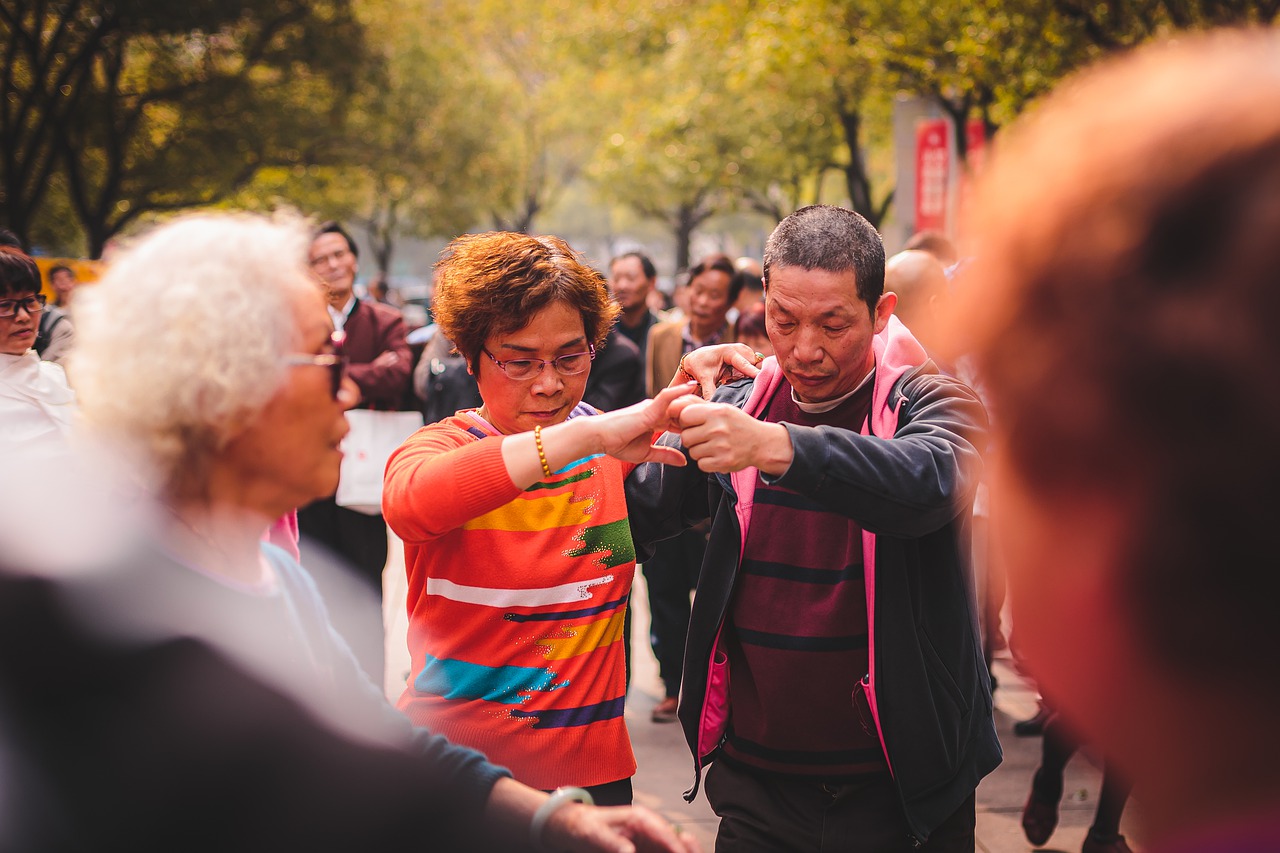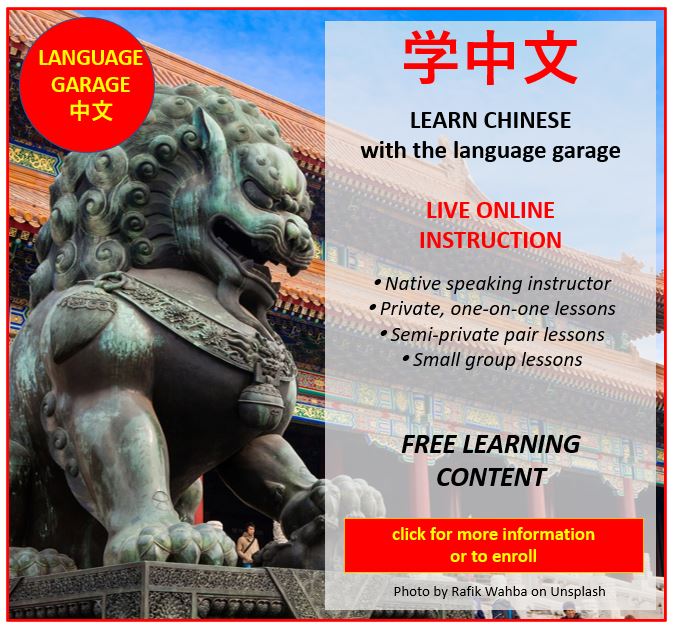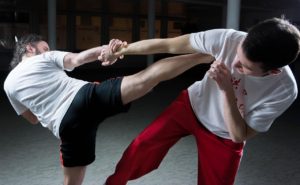Image Source: Pixabay
In this blog post we’ll look at vocabulary and expressions that you can use to describe people in Chinese.
这是我的朋友。 Zhè shì wǒ de péngyǒu. This is my friend.
Let’s start with phrases you can use to introduce people and say how you know each other.
- 这是我的朋友。
Zhè shì wǒ de péngyǒu.
This is my friend. - 我们一起工作。
Wǒmen yīqǐ gōngzuò.
We work together.
- 我们曾经一起工作。
Wǒmen céngjīng yīqǐ gōngzuò.
We used to work together. - 我们一起上学。
Wǒmen yīqǐ shàngxué.
We go to school together. - 我们曾经一起上学。
Wǒmen céngjīng yīqǐ shàngxué.
We went to school together. - 你们是在哪里认识的?
Nǐmen shì zài nǎlǐ rènshí de?
Where did you meet each other? - 我们在大学/ 聚会/ 酒吧/ 咖啡店认识。
Wǒmen zài dàxué/ jùhuì/ jiǔbā/ kāfēi diàn rènshí.
We met at university/at a party/at a bar/at a coffee shop. - 我们有共同的朋友。
Wǒmen yǒu gòngtóng de péngyǒu.
We have mutual friends. - 我们认识很多年了。
Wǒmen rènshí hěnduō niánle.
We’ve known each other for years. - 我们一起长大。
Wǒmen yīqǐ zhǎng dà.
We grew up together. - 我们是邻居。
Wǒmen shì línjū.
We’re neighbors.
他很高。 Tā hěn gāo. He’s tall.
If you’re telling someone about a friend, you may want to describe him or her. Let’s start with physical characteristics.
- 他/她长什么样子?
Tā/Tā zhǎng shénme yàngzi?
What does he/she look like? - 他/她很高。
Tā/Tā hěn gāo.
He’s/She’s tall. - 他/她很矮。
Tā/Tā hěn ǎi.
He’s/She’s short. - 他/她长得好看。
Tā/Tā zhǎng dé hǎokàn.
He’s/She’s good looking. - 他/她很瘦。
Tā/Tā hěn shòu.
He’s/She’s thin. - 他/她很胖。
Tā/Tā hěn pàng.
He’s/She’s fat. - 他/她很年轻。
Tā/Tā hěn niánqīng.
He’s/She’s young. - 他/她老了。
Tā/Tā lǎole.
He’s/She’s old. - 他/她身材很好。
Tā/Tā shēncái hěn hǎo.
He’s/She’s in shape. - 他/她身材走样。
Tā/Tā shēncái zǒuyàng.
He’s/She’s out of shape.
她有一头长发。 Tā yǒu yītóu zhǎng fā. She has long hair.
People have all sorts of different 发型 fǎxíng hairstyles, so that’s a common way to describe people.
- 他/她有一头短发。
Tā/Tā yǒu yītóu duǎnfǎ.
He/She has short hair. - 他/她有一头长发。
Tā/Tā yǒu yītóu zhǎng fā.
He/She has long hair. - 他/她有一头直发。
Tā/Tā yǒu yītóu zhí fā.
He/She has straight hair. - 他/她有一头卷发。
Tā/Tā yǒu yītóu juǎnfǎ.
He/She has curly hair. - 他/她有一头金发/黑发。
Tā/Tā yǒu yītóu jīnfǎ/hēi fǎ.
He/She has blond hair/black hair. - 他/她有红色头发/棕色头发/灰色头发。
Tā/Tā yǒu hóngsè tóufǎ/zōngsè tóufǎ/huīsè tóufǎ.
He/She has red hair/brown hair/gray hair. - 她有辫子。
Tā yǒu biànzi.
She has braids. - 他秃了。
Tā tūle.
He’s bald. - 他有胡子/胡须。
Tā yǒu húzi/húxū.
He has a mustache/beard.
个性 Gèxìng Personalities
Sometimes we describe people we know by talking about their personality types.
- 他/她有什么样的性格?
Tā/Tā yǒu shé me yàng dì xìnggé?
What kind of personality does he/she have? - 他/她很害羞。
Tā/Tā hěn hàixiū.
He’s/She’s shy. - 他/她外向。
Tā/Tā wàixiàng.
He’s/She’s outgoing. - 他/她是认真的。
Tā/Tā shì rènzhēn de.
He’s/She’s serious. - 他/她很焦虑。
Tā/Tā hěn jiāolǜ.
He’s/She’s anxious. - 他/她很放松/随和。
Tā/Tā hěn fàngsōng/suíhe.
He’s/She’s relaxed/easy-going. - 他/她是一个快乐的人。
Tā/Tā shì yīgè kuàilè de rén.
He’s/She’s a happy person. - 他/她是一个不快乐的人。
Tā/Tā shì yīgè bù kuàilè de rén.
He’s/She’s an unhappy person. - 他/她很有条理。
Tā/Tā hěn yǒu tiáolǐ.
He’s/She’s very organized. - 他/她是个乐观主义者。
Tā/Tā shìgè lèguān zhǔyì zhě.
He’s/She’s an optimist. - 他/她是个悲观主义者。
Tā/Tā shìgè bēiguān zhǔyì zhě.
He’s/She’s a pessimist.
我喜欢她! Wǒ xǐhuān tā! I like her!
If you like someone, 积极的人格特质 jījí de réngé tèzhì positive personality traits are probably something you would use to describe them.
- 他/她有很好的个性。
Tā/Tā yǒu hěn hǎo de gèxìng.
He/She has a great personality. - 我很喜欢她。
Wǒ hěn xǐhuān tā.
I like her a lot. - 我很喜欢他。
Wǒ hěn xǐhuān tā.
I like him a lot. - 他/她是一个好朋友。
Tā/Tā shì yīgè hǎo péngyǒu.
He/She is a good friend. - 他/她很有趣。
Tā/Tā hěn yǒuqù.
He’s/She’s very interesting. - 他/她很开朗。
Tā/Tā hěn kāilǎng.
He’s/She’s very cheerful. - 他/她总是心情愉快。
Tā/Tā zǒng shì xīnqíng yúkuài.
He’s/She’s always in a good mood. - 他/她非常友好/友善。
Tā/Tā fēicháng yǒuhǎo/yǒushàn.
He’s/She’s very friendly/nice. - 他/她是忠实的朋友。
Tā/Tā shì zhōngshí de péngyǒu.
He’s/She’s a loyal friend. - 她很体贴。
Tā hěn tǐtiē.
She’s thoughtful of others. - 他/她思想开放。
Tā/Tā sīxiǎng kāifàng.
He’s/She’s open-minded. - 他/她很谦虚。
Tā/Tā hěn qiānxū.
He’s/She’s modest. - 他/她和每个人都处得很好。
Tā/Tā hé měi gèrén dōu chù dé hěn hǎo.
He/She gets along with everyone.
我不喜欢他! Wǒ bù xǐhuān tā! I don’t like him!
On the other hand, if you don’t like someone, 负面人格特质 fùmiàn réngé tèzhì negative personality traits are what you’d use to describe them.
- 我不喜欢他。我不喜欢她。
Wǒ bù xǐhuān tā. Wǒ bù xǐhuān tā.
I don’t like him. I don’t like her. - 他/她惹恼我/让我紧张。
Tā/Tā rěnǎo wǒ/ràng wǒ jǐnzhāng.
He/She annoys me/gets on my nerves. - 他/她总是心情不好。
Tā/Tā zǒng shì xīnqíng bù hǎo.
He’s/She’s always in a bad mood. - 他/她刻薄/不友好。
Tā/Tā kèbó/bù yǒuhǎo.
He’s/She’s mean/unfriendly. - 他/她很固执。
Tā/Tā hěn gùzhí.
He’s/She’s stubborn. - 他/她思想封闭。
Tā/Tā sīxiǎng fēngbì.
He’s/She’s closed-minded. - 他/她很无聊。
Tā/Tā hěn wúliáo.
He’s/She’s dull/boring. - 他/她很自私。
Tā/Tā hěn zìsī.
He’s/She’s selfish. - 他/她很傲慢。
Tā/Tā hěn àomàn.
He’s/She’s arrogant. - 他/她不值得信赖。
Tā/Tā bù zhídé xìnlài.
He’s/She’s not trustworthy. - 他不体贴。
Tā bù tǐtiē.
He’s inconsiderate. - 他/她是个混蛋!
Tā/Tā shìgè húndàn!
He’s/She’s a jerk!
他总是微笑。 Tā zǒng shì wéixiào. He always smiles.
We often describe people by talking about their 习惯 xíguàn habits.
- 她总是在微笑。她从不微笑。
Tā zǒng shì zài wéixiào. Tā cóng bù wéixiào.
She smiles all the time. She never smiles. - 他总是在笑。他从不笑。
Tā zǒng shì zài xiào. Tā cóng bù xiào.
He laughs all the time. He never laughs. - 她工作非常努力。
Tā gōngzuò fēicháng nǔlì.
She works very hard. - 他很懒。
Tā hěn lǎn.
He’s lazy. - 她抱怨很多。
Tā bàoyuàn hěnduō.
She complains a lot. - 她从不抱怨。
Tā cóng bù bàoyuàn.
She never complains. - 他从不想做任何有趣的事情。
Tā cóng bùxiǎng zuò rènhé yǒuqù de shìqíng.
He never wants to do anything fun. - 她总是想做一些刺激的事情。
Tā zǒng shì xiǎng zuò yīxiē cìjī de shìqíng.
She always wants to do something exciting. - 她经常锻炼。
Tā jīngcháng duànliàn.
She works out a lot. - 他玩电子游戏玩得太多了。
Tā wán diànzǐ yóuxì wán dé tài duōle.
He plays too many video games. - 他总是遵守规则。
Tā zǒng shì zūnshǒu guīzé.
He always follows the rules. - 她想做什么就做什么。
Tā xiǎng zuò shénme jiù zuò shénme.
She does whatever she wants. - 她常常和朋友出去玩。
Tā chángcháng hé péngyǒu chūqù wán.
She goes out with her friends a lot. - 他喜欢呆在家里。
Tā xǐhuān dāi zài jiālǐ.
He likes to stay home. - 她玩很多运动。
Tā wán hěnduō yùndòng.
She plays a lot of sports. - 他总是在阅读。
Tā zǒng shì zài yuèdú.
He reads all the time. - 他举办了盛大的派对。
Tā jǔbànle shèngdà de pàiduì.
He throws great parties. - 她为她的朋友做了很多事情。
Tā wèi tā de péngyǒu zuòle hěnduō shìqíng.
She does a lot for her friends.
她真的很聪明。 Tā zhēn de hěn cōngmíng. She’s really smart.
People have different 才艺 cáiyì talents and 爱好 àihào interests, and sometimes we describe people by saying what they’re good (or not so good!) at.
- 他/她很聪明。
Tā/Tā hěn cōngmíng.
He’s/She’s smart/intelligent. - 他/她对历史/语言/艺术/电影有兴趣。
Tā/Tā duì lìshǐ/yǔyán/yìshù/diànyǐng yǒu xìngqù.
He’s/She’s interested in history/languages/art/movies. - 他/她写作/烹饪/绘画/唱歌非常好。
Tā/Tā xiězuò/pēngrèn/huìhuà/chànggē fēicháng hǎo.
He/She writes/cooks/paints/sings very well. - 他/她有很多爱好。
Tā/Tā yǒu hěnduō àihào.
He/She has a lot of hobbies. - 他/她喜欢动物。
Tā/Tā xǐhuān dòngwù.
He/She loves animals. - 他/她喜欢旅行。
Tā/Tā xǐhuān lǚxíng.
He/She loves to travel. - 他/她喜欢与朋友一起。
Tā/Tā xǐhuān yǔ péngyǒu yīqǐ.
He/She loves to spend time with friends. - 他/她网球很好。
Tā/Tā wǎngqiú hěn hǎo.
He’s/She’s good at tennis. - 他/她网球很糟糕。
Tā/Tā wǎngqiú hěn zāogāo.
He’s/She’s terrible at tennis. - 他/她是有天赋的音乐家。
Tā/Tā shì yǒu tiānfù de yīnyuè jiā.
He’s/She’s gifted musician. - 他/她不能唱歌/跳舞。
Tā/Tā bùnéng chànggē/tiàowǔ.
He/She can’t sing/dance well. - 他/她很有创意。
Tā/Tā hěn yǒu chuàngyì.
He’s/She’s very creative. - 他/她不是很有创意。
Tā/Tā bùshì hěn yǒu chuàngyì.
He’s/She’s not very creative. - 你真的会喜欢他/她的!
Nǐ zhēn de huì xǐhuān tā/tā de!
You would really like him/her!
Do you want to learn Chinese?
Check out our other posts on Chinese language, culture, and more. And if you’re looking for convenient and affordable live Chinese lessons with a real teacher, check out The Language Garage. Our lessons are given online in a virtual classroom, so it doesn’t matter where you live or work – we can come to you. And we have flexible options, with a free trial so that you can decide if there’s a fit. Check us out!





